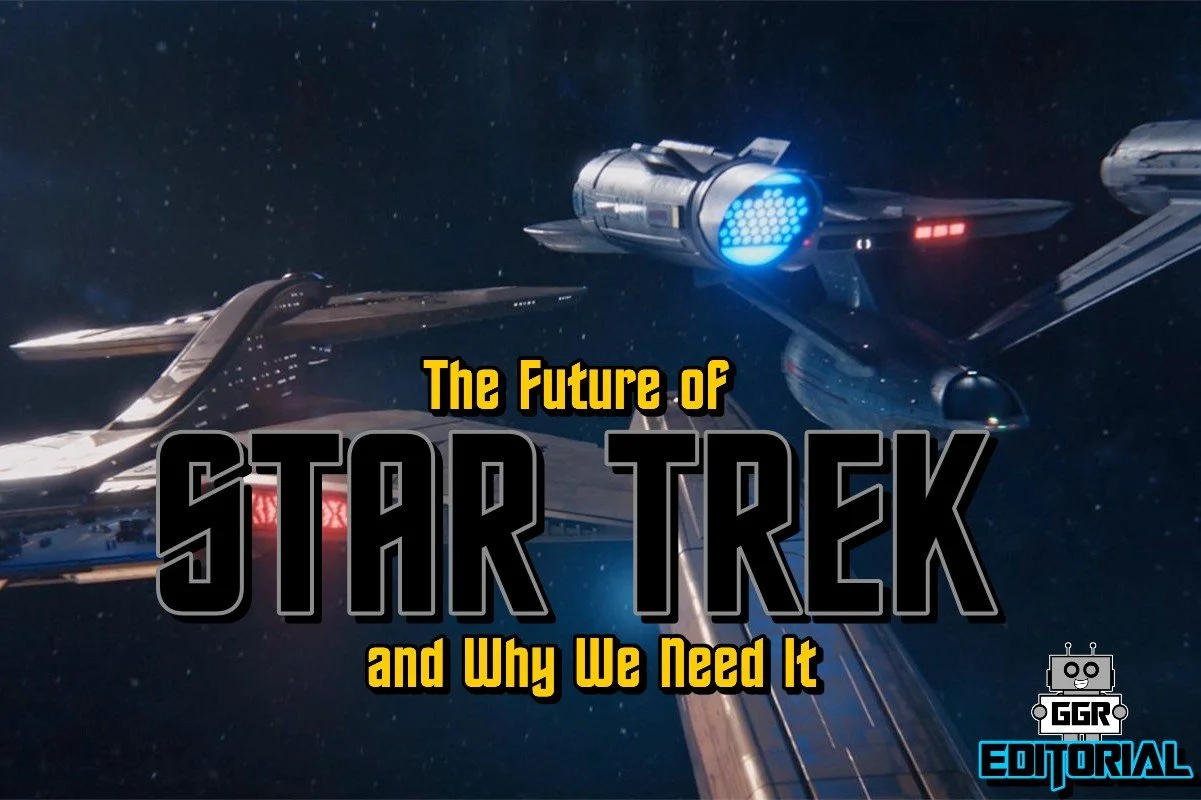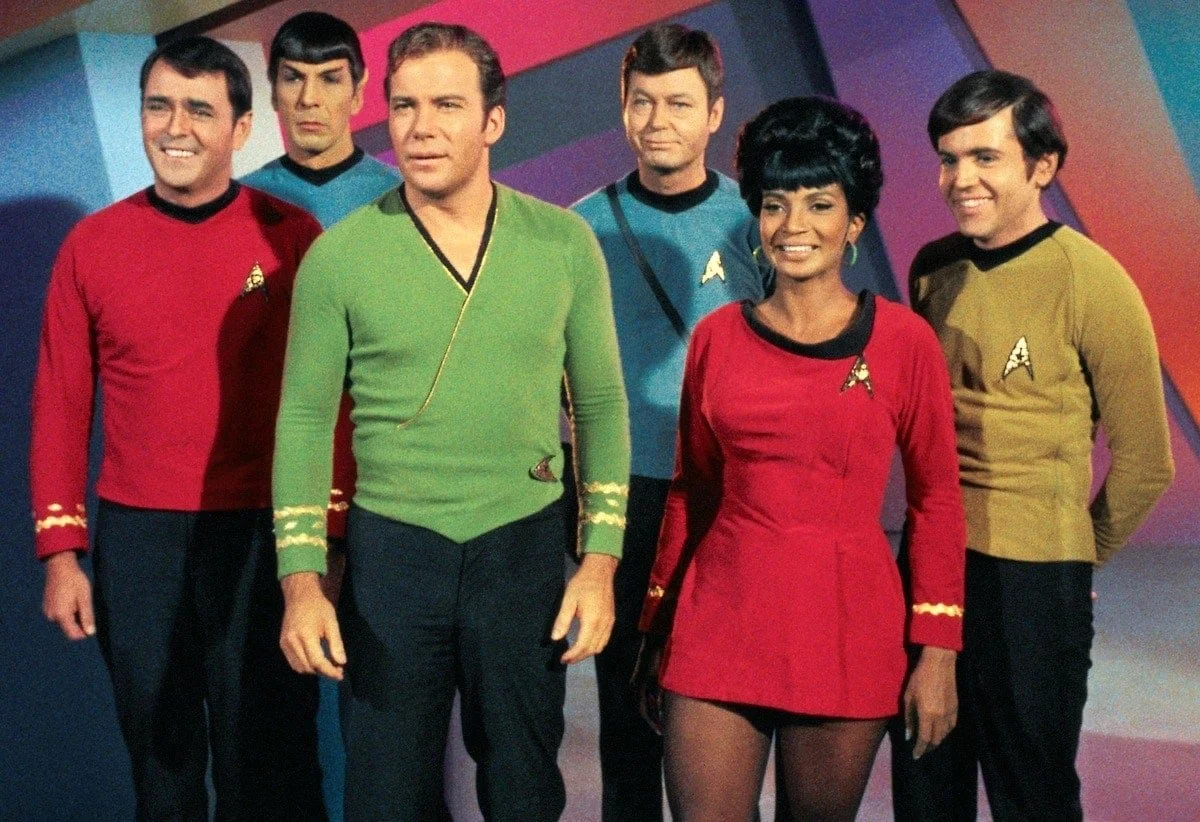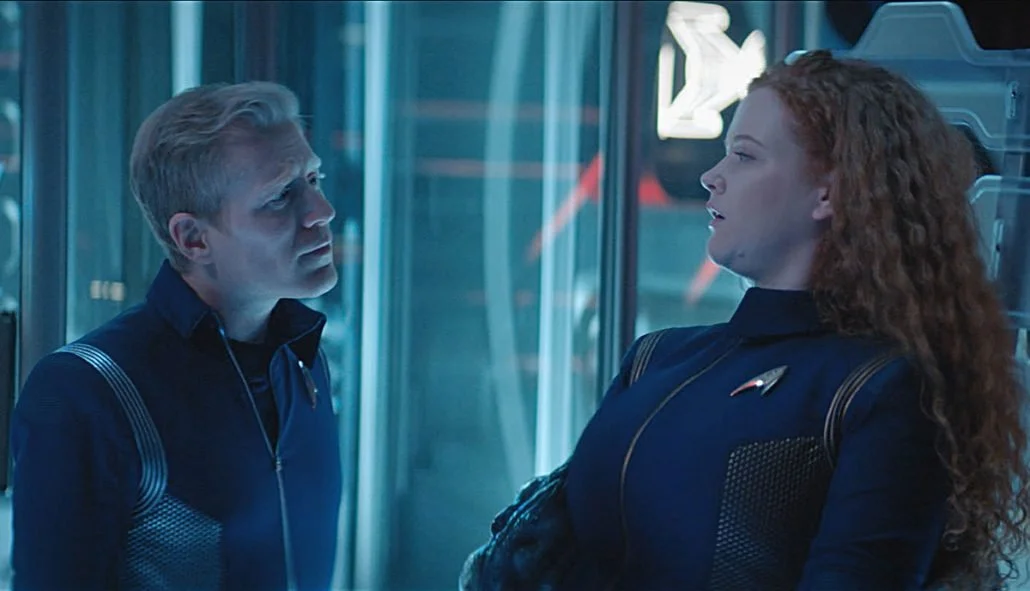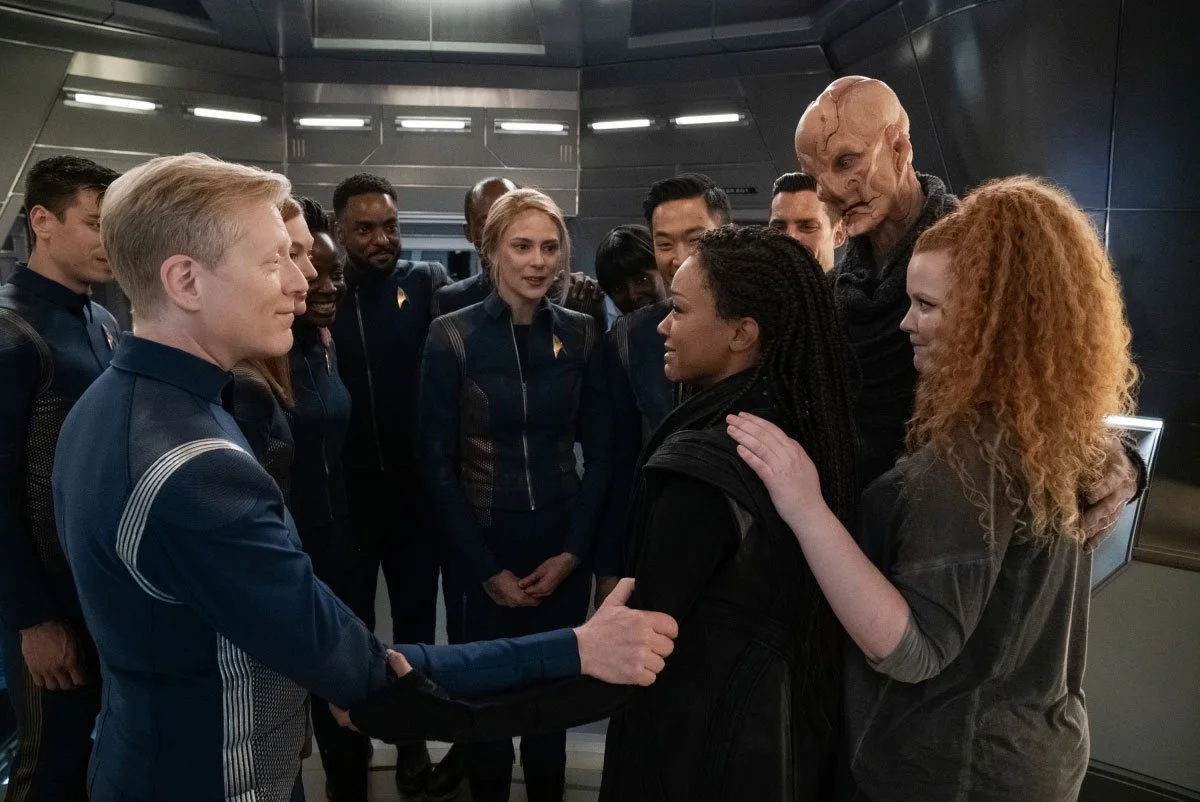The Future of Star Trek and Why We Need It
by Mike Lunsford, GGR Editor-In Chief
Star Trek has existed since the 1960s. There were times when its future seemed bleak and that it was just a cheesy sci-fi show that would be lost to the annals of time. But it survived. The fans organized conventions to keep the stories alive. They wrote letters. They did everything they could to ensure that people didn’t forget about this series which meant so much to them. But why did it mean so much? What was so great about this particular series? Because this science fiction show revealed a future that could include all races, nationalities, and sexes living and working together to explore the stars. Before Star Trek, no show featured the following as “good guys”: a Russian navigator during the height of the Cold War; a black communications officer while the United States was still in the midst of the civil rights movement; and a Japanese helmsman while the memories of World War II were still fresh. That promise of an inclusive future is what kept the series alive in the hearts and minds of millions.
And those fans succeeded in saving the show. Star Trek was reborn. After decades off the air and only available as reruns, the original crew got a silver screen debut in 1979 with Star Trek: The Motion Picture. The movie did so well that it spawned a franchise that was 6 films long and extended Star Trek’s legacy into the 90s. It also kickstarted a new television series with Star Trek: The Next Generation. The new movies and series tackled similar topics like racism and equality, but also expanded into topics like sexual identity, what defines life, the ethical ramifications of terrorism, and many more thoughtful topics. What’s interesting - and the reason for this article - is the enormous pushback from the fan base when the new Trek series debuted. And now, with two new live action Star Trek series on the air (and a third set to debut next year), we hear the same sentiments about “New Trek.”
The common refrain from many of the old school fans sounds like this
These characters are so awkward and nerdy! And they are so overly emotional! This just isn’t my Star Trek!
I want to start my criticism of this criticism - a counter-criticism if you will - with a few observations. First of all, awkwardness, nerdiness and being overly emotional are not weaknesses or flaws as the old school fans imply. And frankly, they are attributes we want in a utopian society. Star Trek: Discovery’s concept of humanity’s future expertly shows a utopia that is not one of emotionless, stoic explorers. It is not one of militaristic, macho misogyny that has the prototypical “man’s man” blowing shit up in space. It’s correctly depicting that humanity should be nerdy. It should be awkward. It should show emotion outwardly and not be afraid to do so.
The best science fiction is a future mirror of society. It is telling that the biggest complaints about “New Trek” is that it’s too emotional, too diverse, and too focused on women; and that some of the characters are “too heavy” for Starfleet. These complaints are telling on us and our proclivities towards sexism, racism, and our lack of understanding and empathy when it comes to emotional outpouring.
Getting excited about learning should not be something we are ashamed of and Discovery makes these characters heroes for being intelligent and working through problems with science. We see geniuses struggle with interpersonal relationships and interactions. We all struggle with that. Shit, in the second episode of season 4, Tilly and Doctor Culber have an interaction that you can tell Tilly is not comfortable having (expertly acted by Mary Wiseman). As she’s leaving she uses a strange voice as she states she’s going to “analyze the data!” This was a small piece of the episode but one of the most realistic depiction of what real conversations are like.
Additionally, characters like Tilly are perfect. Mary Wiseman is not a slight woman by any stretch, and it’s further telling that her body shape/type/weight are topics of conversation OFTEN from Star Trek fans. It’s insanity that anyone would care about this. Gene Roddenberry famously discussed casting a bald Patrick Stewart as the captain of the Enterprise when Next Generation premiered. Many thought that in the future, baldness would be cured.
And Gene Roddenberry responded "no, by the 24th century, no one will care."
I would like to point out that no one on board the USS Discovery has commented on her weight. No one has mentioned her figure. In the 23rd century, no one cared and certainly no one cares now that they’re in the 32nd century.
Are the characters too emotional? I don’t know if that’s a fair question. My issue with the “last day of high school, pouring out my heart” speeches that the characters give each other at the end of season 2 was mostly that there were too many speeches. But put yourself in the shoes of characters getting ready to fight an enemy that they feel is nearly unbeatable. And, again…they’re 300 years in the future at this point. I’d think they would be more evolved, more in touch with their emotions, not afraid to share how they feel because of REALLY outdated concepts of masculinity and stoicism. Good for them. Cry that shit out.
We need shows like Star Trek: Discovery to not play it safe. We need the envelope pushed. We need women in command roles. We need mixed families. We need gay couples to be a normal thing and not a novelty. We need non-binary characters and trans characters. We need people of color visible and in heroic, successful roles. Additionally, we need awkward nerds as lead characters. That sort of characterization shouldn’t be made a stereotype or lazy trope and the writers of Discovery and Picard have shown that these characters are deep and interesting. The same struggles we deal with today are things that humans of the future will deal with. PTSD is real and something you can’t “evolve beyond.” Emotional earnestness is an evolution of what we strive for today. Mental health is important and not something you can raise shields to thwart. Love is love, not just a male-female heterosexual interaction and that’s it.
“New Trek” shows boldly showcase these ideals. They are boldly going where few have gone before and we need that. We can truly come together as one human race when we accept that equality is not just for those who look different. It’s for those who speak differently, who think differently, and who act differently.





